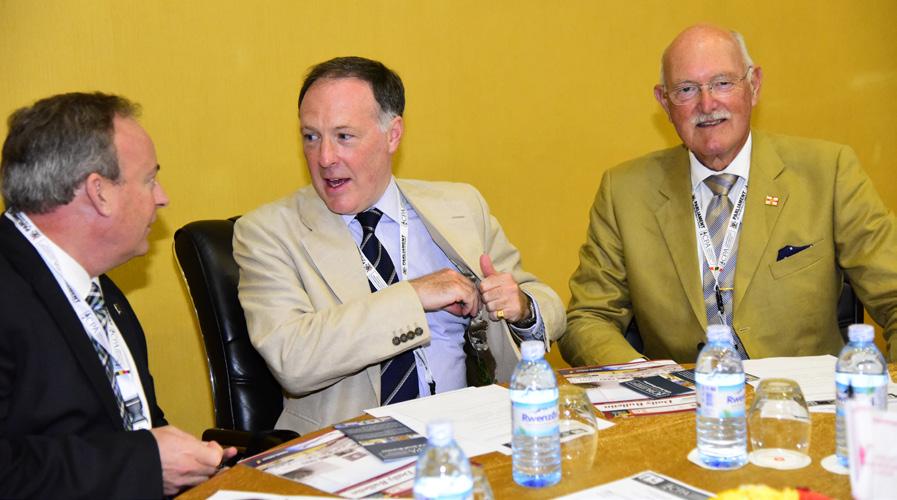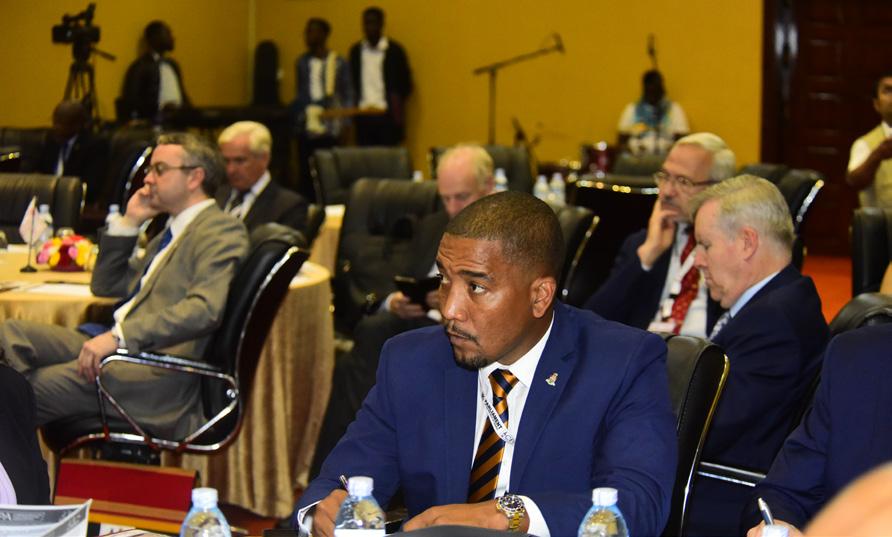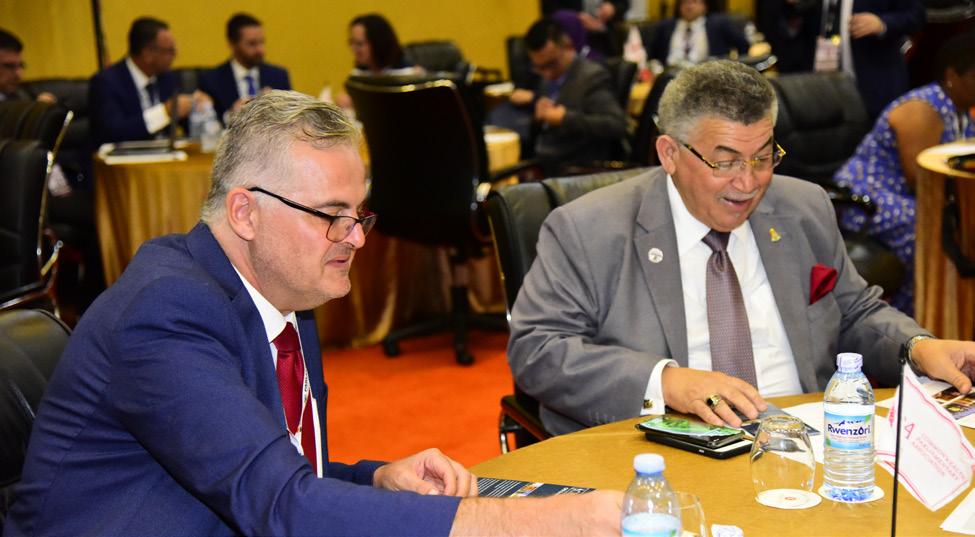
3 minute read
37th CPA SMALL BRANCHES CONFERENCE WORKSHOP OUTCOMES
Conference Theme: ‘Adaption, engagement, and evolution of Parliaments in a rapidly changing Commonwealth’
Small Branches Session 1: How do Commonwealth countries (CPA Small Branches in particular), that all ostensibly base their Parliamentary procedures and practices on the Westminster model, implement culturally appropriate measures including institutional design?
Session 1 recommendations: • Each Parliament should take advantage of Westminster flexible procedures to apply changes that actually work in modern times, suiting cultural and historical realities. • CPA Small Branches shall develop Legislatures that fit their contexts and look to the experience of other Small Branches for examples of good practice.
Small Branches Session 2: Innovation in Parliament – The possible effects of United Kingdom’s ‘Brexit’ on CPA Small Branches

Delegates from Guernsey attend the CPA conference.
Session 2 recommendations: • CPA Small Branches, especially sub-nationals, should effectively participate in decision making to ensure that they have input in policies that will directly affect them. • CPA Small Branches should extend their networks for sharing information and best practice to better tackle major common challenges such as ‘Brexit’ and climate change. • Legislatures must recalibrate their relations with the United Kingdom. Although risks and uncertainties predominate, the opportunities ‘Brexit’ will present must not be undermined.

Delegates at the CPA Small Branches Conference.
Small Branches Session 3: What professional development and training is required to develop focused and talented Parliamentarians?
Session 3 recommendations: • Parliamentarians from CPA Small Branches are actively encouraged to seek professional development and training outside their jurisdictions in order to broaden their knowledge and understanding. • CPA Small Branch capacity can be built by giving MPs the knowledge and skills required. Branches should encourage MPs to attend the CPA-McGill University Professional Development Programme. • Parliaments shall encourage political parties to employ candidate selections that include talented, substantive prospects, embracing the importance of gender balance, and encouraging sensitivity and diversity.

Delegates attended from the Caribbean Region.
Small Branches Session 4: Climate change and the possible effects on CPA Small Branch economies and development
Session 4 recommendations: • Parliament must foster dialogue which leads to mechanisms for building resilience of Small Island States adapting to climate change, which adversely affect our GDP. • Parliamentarians have a critical role in raising awareness of climate change, while developing appropriate policies and legislation to protect the environment and human rights. • Parliaments should participate in initiatives and programmes by United Nations bodies that facilitate mitigation and adaption policies, climate finance and technology in Small Island States.

CPA Small Branches Chairperson (2016-2019), Hon Angelo Farrugia, MP, Speaker of the Parliament of Malta.



